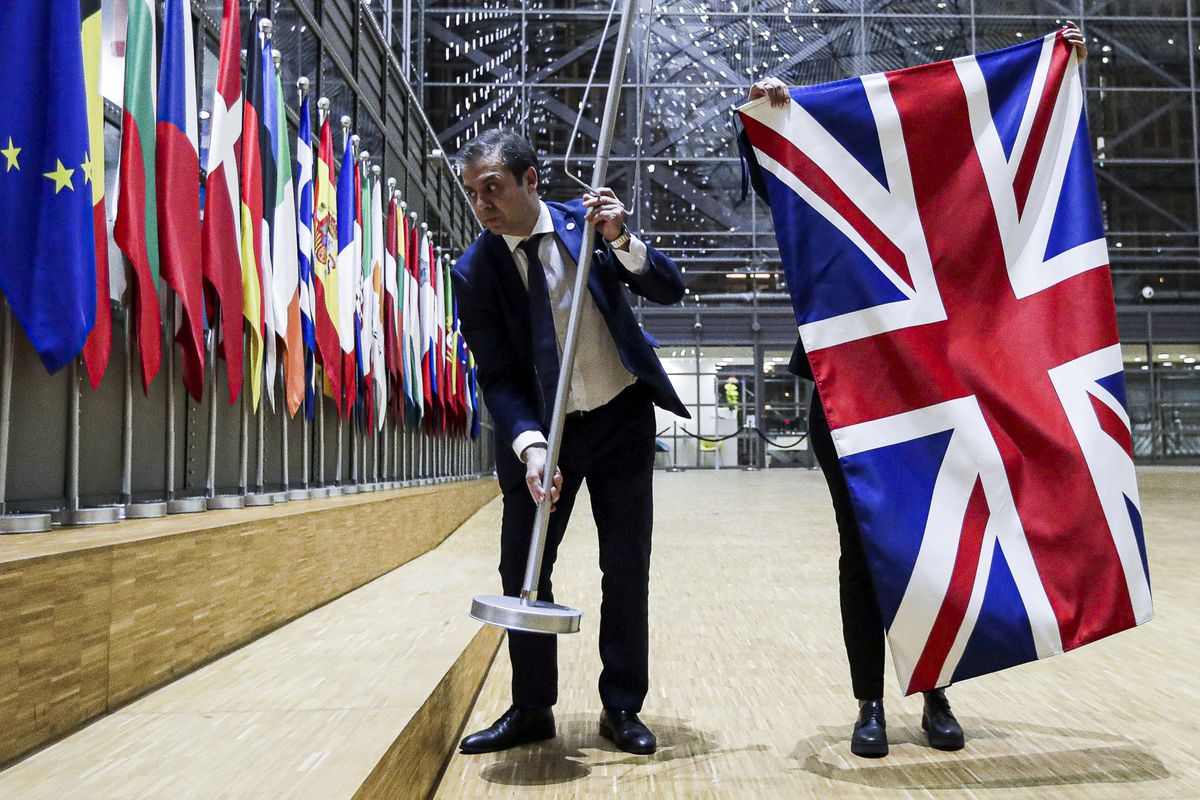Brexit has become a reality. Despite protracted negotiations, there is no way to reverse Britain’s transition out of the European Union.
The successor of a global empire, Britain joined the E.U. after it lost its colonial possessions. France’s former President Charles de Gaulle blocked its application twice. When it finally joined in 1973, the U.K. requested budget rebates and various policy opt-outs.
Now, its departure endangers the future of the European project. That is why policymakers in Brussels should reflect on how to save the bloc from the Brexit fallout.
How Brexit Harms the EU
Brexit, undoubtedly, undermines the European Union in three ways.
First, it sets an example for other populists. The previously unimaginable scenario of leaving has been unfolding in slow motion for years. Populists of all stripes within the European Union feel emboldened to imitate Brexit. Public references to a Dexit, Grexit, or Frexit scenario abound.
What prevents far-right parties – the National Front in France, the Alternative for Germany, the Forum for Democracy in the Netherlands – from promising voters a better life out of the E.U.? Not much. And if Britain does economically well outside the bloc, the exit option may gain in credibility leading to a domino effect.
Second, Brexit slows down the E.U.’s enlargement process. Resistance to further enlargement has spread from populists to moderate actors.
France’s Emanuel Macron now says that the Eastern Partnership does not lead to E.U. membership. Moldova, Ukraine, Georgia, Belarus, Azerbaijan, and Armenia are openly told that, unlike the Western Balkans, they lack a membership perspective. Such assertions cause disappointment among the pro-Western public in the E.U. neighborhood and enthusiasm in Moscow.
Third, Brexit affects the depth of European integration. There was always a tradeoff between deepening and widening the bloc. Currently, member states are more reluctant than ever to transfer additional sovereignty to supranational bodies in Brussels.
All of this points to the onset of a profound integration fatigue akin to E.U.’s earlier Eurosclerosis period.
Eurosclerosis
The first Eurosclerosis era arrived after a period of integrationist enthusiasm. In the 1950s, European politicians agreed on creating a European Defense Community and even a European Political Community. Those two communities failed, but the idea of an economic community survived and became a success.
After that, however, integration stalled for a variety of reasons. France embraced De Gaulle’s L’Europe des Patries perspective and advocated for national governments calling the shots. The British strategically vetoed reforms to get a budget rebate. Sluggish growth, slow job creation, overregulation, and overgenerous spending lasted for years.
The blockage ended due to Jacques Delors’ transformative leadership at the helm of the European Commission (1985 – 1995). He forged a fragile community-wide consensus centered on the necessity of a common market. Then, the euphoria of the fall of communism provided more impetus for E.U.’s enlargement.
The current Eurosclerosis is worse. It was triggered by the European debt crisis and efforts to keep Greece in the Eurozone at all costs. Divisions over immigration and Brexit amplify the uncertainty. Negative attitudes toward further enlargement are intensifying, and external actors interfere with elections.
Eurosceptics and populists blame Brussels for everything. Secessionist movements in Spain and Belgium pose another set of challenges. To survive this valley of death without disintegrating, the E.U. must become more robust.
Overcoming Eurosclerosis
Crises can be opportunities, according to Jean Monnet, one of E.U.’s founding fathers. To defeat the present Euro-fatigue and re-energize the European project, a couple of changes would need to happen.
The idea of a united Europe needs to be embraced by both elites and voters. A revived federalist movement could plead for a deeper union building on the Pan-Europe concept proposed by the Austrian Richard von Coudenhove‑Kalergi in the 1920s.
The occasion for a renewed debate about the future of a united Europe, which would transcend the imaginary boundaries of the national communities, could be the upcoming 2024 elections. Without genuine popular support, the E.U.’s supranational policies will continue to be framed by populists as imposed by Brussels.
Then, of course, the E.U. needs a transformative leader, someone who would strengthen the authority of the European Commission, much like Delors.
If it is to survive the current populist turmoil, the E.U. must reform its institutions and become more responsive. And it should learn to solve common problems effectively. This, however, requires faster consensus-reaching via more majority-voting, which is not easy at all in a block with 27 members.
Allowing for more “variable geometry,” “differentiated integration,” and a multi-speed Europe envisioned by former German Chancellor Konrad Adenauer would bring more flexibility. Following the same logic, some member states should be encouraged to accept opt-outs rather than be forced to leave altogether.
Innovative Solutions
Because there are no perfect historical analogies to the European Union, solutions to the current stalemate will be innovative. Even though some scholars have compared the bloc to Austria-Hungary, Yugoslavia, and the Soviet Union, the E.U., unlike the previous examples, is polycentric and lacks the capacity to use coercion to enforce laws and policies.
If European disintegration were to happen, it would occur along national boundaries. In this regard, the worst-case scenario for Europe is the descent back to nationalism.
Consequently, the anti-E.U. parties in the core states of the Union – Germany and France – pose the greatest danger. It is irritating when some of the member states at the periphery disrespect the rule of law as happens nowadays in Poland and Hungary, but a Eurosceptic party winning enough votes to form the government in Germany or France would be a total nightmare for the European project.
The Franco-German engine of European integration will propel the bloc forwards only if mainstream politicians find ways to successfully oppose the rise of Eurosceptic populists across the continent.



